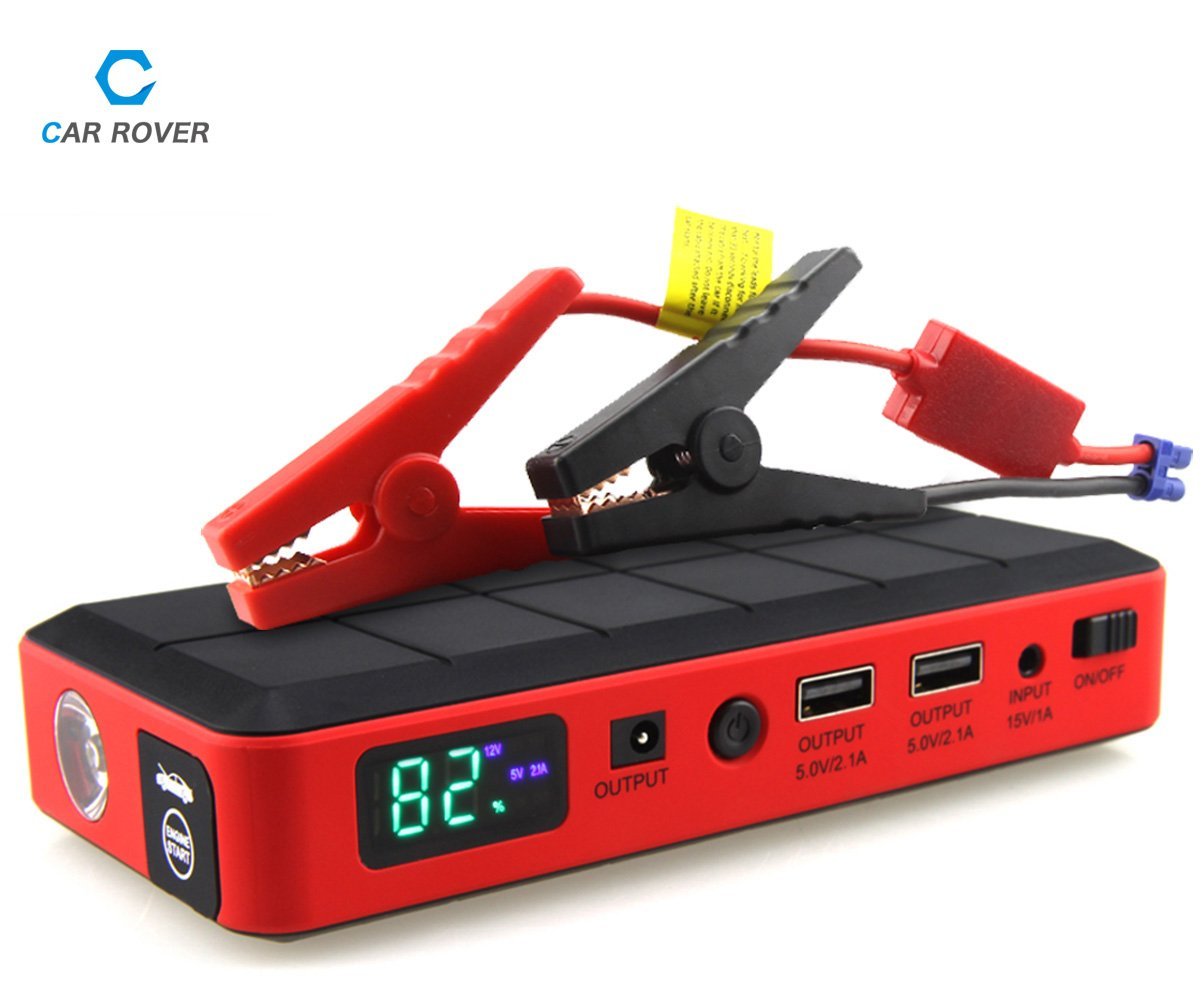Never Get Stranded Again: Your Guide to Car Jump Starter Power Banks

Dead battery? It's happened to the best of us. You're running late, turn the key, and…nothing. A sinking feeling of dread washes over you. But what if you could skip the frantic calls for a jump and get back on the road in minutes? Enter the car jump starter power bank, a portable lifesaver for every driver.
A car jump starter power bank, also known as a portable jump starter or battery booster pack, is essentially a portable battery that provides enough juice to crank your engine when your car battery fails. These compact powerhouses are a game-changer, offering a level of convenience and peace of mind that traditional jumper cables just can't match. They’re more than just jump starters though. Many models double as portable power sources for charging phones, laptops, and other devices, making them invaluable for road trips and emergencies.
Before these portable power banks were common, jump-starting a car required another vehicle and jumper cables, often necessitating flagging down a stranger for help. This could be inconvenient, time-consuming, and sometimes even dangerous. The earliest portable jump starters were bulky and less powerful. Advancements in battery technology have led to smaller, lighter, and more powerful units capable of starting larger engines multiple times on a single charge.
The primary issue with traditional jump-starting involves connecting the cables correctly. Incorrect connection can damage your car's electrical system or even cause a battery explosion. Car jump starter power banks eliminate this risk by providing a simple and safe way to boost your battery without the need for another vehicle or the risk of improper cable connection. This makes them especially useful for solo drivers or those who travel in remote areas.
Another significant issue is finding someone to assist with a jump start, especially in isolated locations or during inclement weather. A portable car jump starter eliminates the need for outside assistance, giving you the power to solve the problem independently and quickly.
Benefits of owning a car jump starter power bank include: independence in jump-starting your car, safety by eliminating the need for another vehicle and jumper cables, and multi-functionality as many models offer USB ports and other features for charging electronic devices. Imagine being stranded in a remote area with a dead car battery and a dying phone. A jump starter power bank not only gets your car running again but also keeps your phone charged for emergencies.
Choosing the right jump starter involves considering the size of your engine. Smaller engines require less power, while larger engines, particularly diesel engines, need a more robust jump starter. Check the peak amps and cranking amps to ensure the device is compatible with your vehicle.
Advantages and Disadvantages
| Advantages | Disadvantages |
|---|---|
| Convenience and Portability | Requires Periodic Charging |
| Safety | Can be Expensive (Higher-end models) |
| Multi-Functionality | Limited Lifespan (Battery Degradation) |
Best Practices:
1. Regularly charge your jump starter. Don't wait until it's completely drained.
2. Store your jump starter in a cool, dry place.
3. Read the user manual carefully before using the jump starter.
4. Double-check the connections before turning the key.
5. After jump-starting your car, let the engine run for at least 30 minutes to recharge the car battery.
Frequently Asked Questions:
1. How often should I charge my jump starter? Generally, every 3-6 months.
2. Can I use a jump starter on a motorcycle? Yes, but make sure it's compatible.
3. How long does a jump starter hold a charge? It varies, but most can hold a charge for several months.
4. What are peak amps and cranking amps? Peak amps are the maximum current the jump starter can deliver, while cranking amps are the current it can sustain for a short period to start the engine.
5. Are jump starters safe? Yes, when used correctly.
6. How do I choose the right jump starter? Consider your engine size and the features you need.
7. Can a jump starter power other devices? Many models have USB ports for charging phones, laptops, etc.
8. What should I do after jump-starting my car? Let the engine run for at least 30 minutes to recharge the car battery.
Tips and Tricks:
Keep your car jump starter power bank in your trunk for emergencies. Consider a model with a built-in flashlight for added convenience.
In conclusion, a car jump starter power bank is a must-have for any driver. The convenience, safety, and multi-functionality make it an invaluable tool. From providing peace of mind on long road trips to saving you from the hassle of finding a jump in a remote area, the benefits are clear. By understanding the different types of jump starters available and following best practices, you can choose the perfect portable jump starter for your needs and ensure you’re always prepared for the unexpected. Invest in a quality car jump starter power bank today and experience the freedom and confidence of knowing you'll never be stranded by a dead battery again. Don't wait for the dreaded moment of a dead battery to realize the importance of this essential tool. Be proactive and equip yourself with the power to take control in any roadside emergency.
The allure of animated white cats a journey through cartoon felines
Orange county recording office florida your guide to public records
See the transformation exploring before after botox images













